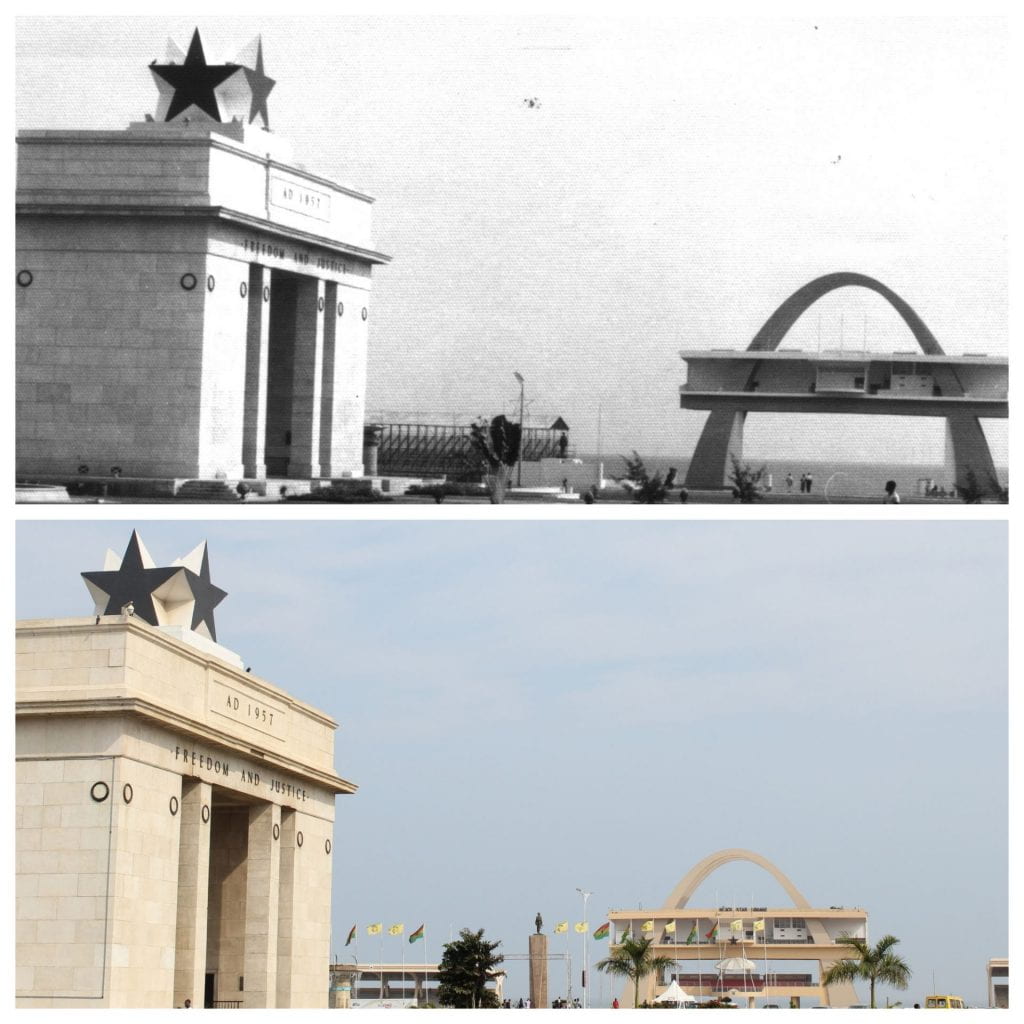When I first decided to come to Ghana for a six-week internship at the Chronicle, my grandmother became very excited. “I have an old friend who grew up in Ghana in the 60s! She absolutely loved it,” she told me. That is how I came to know Frances Longman, a British citizen whose family moved to Ghana when she was just four years old.
Longman moved to Accra in 1963 and she lived in Achimota and in East Legon until 1968. She experienced Ghana just a few short years after it claimed independence from the British. Although she lived in Accra more than 50 years ago, a lot of her experiences as a foreign woman parallel mine here in 2019. In the short weeks that I have worked here, I have noticed that a surprising amount of Longman’s observations remain true, although a few things have definitely changed.
One similarity between then and now is the trotros. Although in the 60s the actual buses looked different, they operated the same way as they do now. Longman describes them as “lorries where people would pile onto. They usually had some religious saying on them.” Longman recalls how confusing the trotro system was back in the day, saying that they were intimidating, stuffed with people, poultry and goods. I had to laugh at her memory, for I felt the same way when I first arrived in Accra. For a foreigner, it is very confusing that there are no marked trotro stops, no signs to where they are going and no set route. However, after six weeks I feel a little bit more confident catching the trotro to Accra and riding it until its last stop.
Although the trotros are the same, the traffic certainly is different. Longman was succinct in her description of Accra traffic in the 60s: “There wasn’t a great deal.” Now, that is a laughable prospect–myself and many of my peers spend over two hours a day commuting a few miles. Rush hour in Accra is legendary, making getting across the city during certain hours an almost impossible prospect.
One unfortunate change in Accra since the 60s is the trash problem that is currently affecting the city. Longman recalls her neighborhoods as clean, and while living on the university campus, she said that she and the other children would even swim in the gutters when it rained.
In her photos of the beaches, they are pristine, without a single piece of plastic on them. Now, a visit to almost any beach in Accra will reveal piles of clothes that have been washed up onto the sand, water bottles floating in the ocean and little pieces of styrofoam covering any available surface. The gutters and surrounding areas are often completely filled with used water bottles and other pieces of plastic.
Despite these negative changes, there have been a lot of positive ones as well. While Longman was living in Accra, there wasn’t the political stability that there is now. She admits, “we did have a few coups” while she was living here. She remembers in particular detail when she was sent home from primary school because there were yelling and gunshots. Now, Ghana is a model country for peace and democracy. They have a working parliament, a democratically elected president and separate parties.
Some of the best parts of Ghanaian culture and attitudes have remained the same. Longman remembers an exciting music culture in Accra. She said that “music was very important and especially highlife music was very important.” I can attest that this love of the arts has continued, with live music all over the city every night, music pumping on many of the streets and in the trotros, and pride in the music that is produced in Ghana.
Food is another aspect of Ghanaian living that Longman looks back upon fondly. She remembers her mother’s groundnut stew. She also remembers “cooked plantain, which [her mother] loved.” Their family and others at the time ate the plantain with ginger. She herself was not particularly fond of fufu, something we do not share in common. My own experience with food in Ghana has been mostly fried chicken, jollof rice, fried plantain, spicy stews and banku. Like Longman, I have also noticed how much Ghanaians love ginger, especially in their spicy drinks.
Longman also remembers peoples’ bright, vibrant and beautiful clothing with particular detail. Women used to come to her house on the University of Legon campus to sell fruit. She describes them as wearing traditional dress. She says that “underneath their baskets, they would have a bit of cloth made into a little pillow to sit on the top of their head.” As I look out the window of the trotro, I notice that the traditional dress is less common (although many people do wear it), but that little piece of the cloth remains on every vendor’s head.
Finally, Longman describes Ghana as “a very vibrant, very happy country to live in.” I could not agree more. Ghanaian hospitality is the thing I will remember most from my six weeks here. Everybody is friendly, happy and helpful. People here love their life, their family and their Ghanaian identity. Ghana is a country that I would recommend that everybody comes to and I hope that the amazing qualities that Ghana possesses remain the same for the next fifty years.



